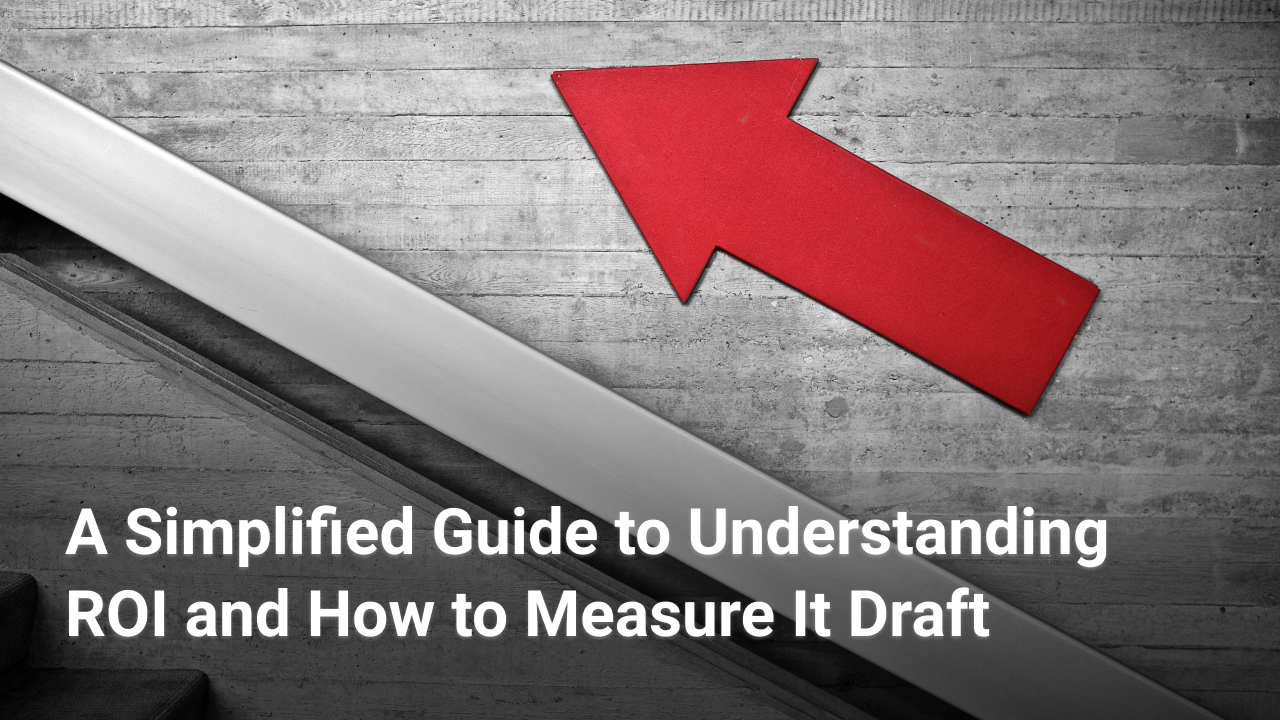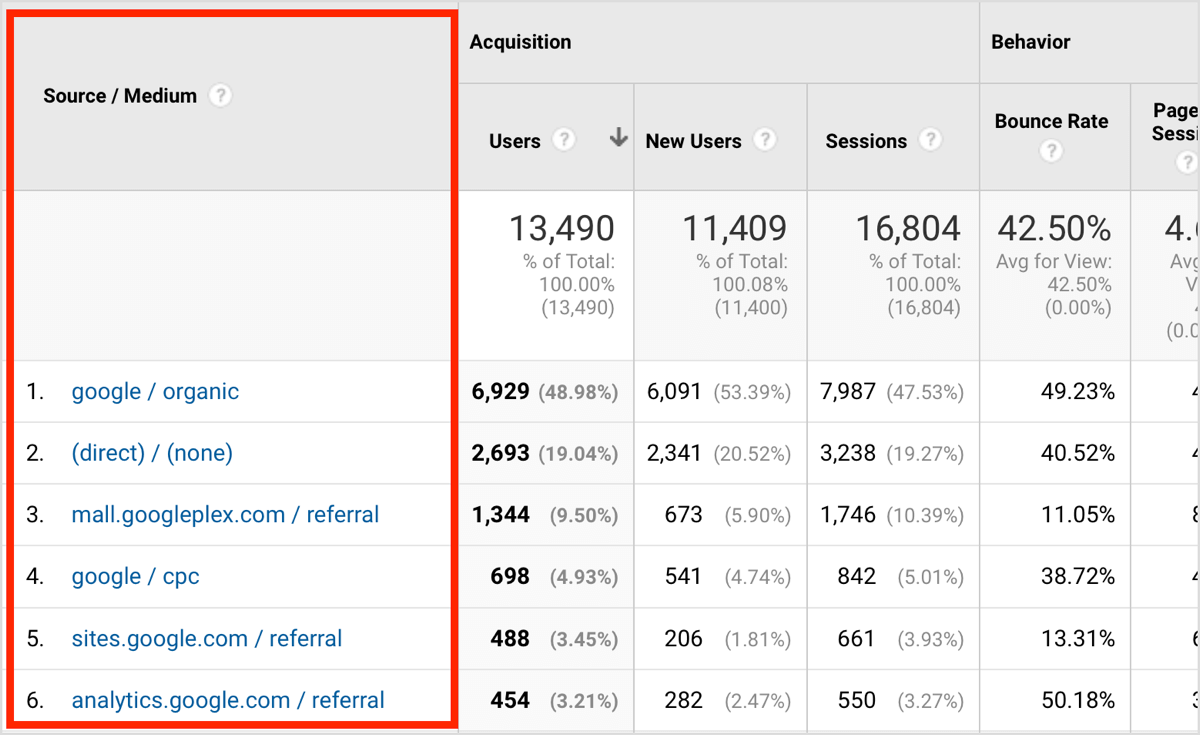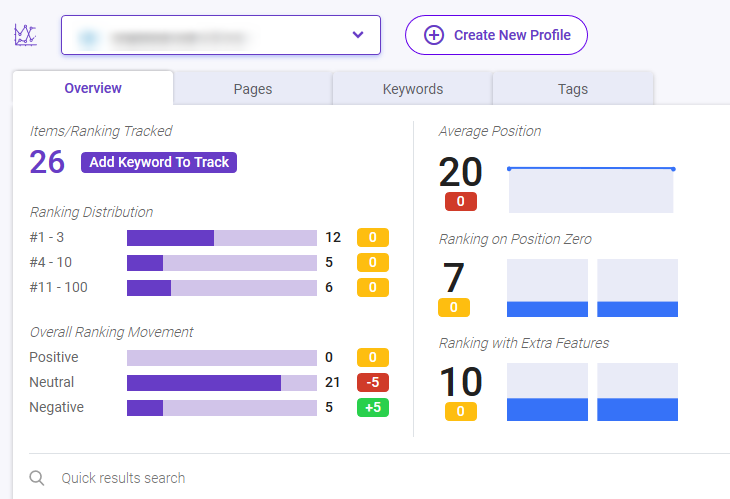Steph W. from SEOPressor


...help you check your website and tell you exactly how to rank higher?


97
score %
SEO Score

Found us from search engine?
We rank high, you can too.
SEOPressor helps you to optimize your on-page SEO for higher & improved search ranking.
By jiathong on March 24, 2020

No matter the industry, millions of small business professionals worldwide understand the nuances of their respective occupation, but can often get lost in the basics of running a business.
One key principle can often be complicated, even frustrating to comprehend.
It is the important principle of Return on Investment (ROI).
This is often an intimidating aspect of running a business. In fact, 25% of content marketers admit they don’t even measure it!
We’ll simplify this principle by explaining how to measure it and then we’ll offer methods to improve your ROI’s bottom line.
Even if you have a relative understanding of your business ROI, the understanding of how to measure it could probably improve and perhaps the method you use can be replaced with a more effective one. One that streamlines your process and leads to better results.
Before breaking ROI down and offering techniques to accurately and successfully measure it, it will help to answer the questions: What exactly is ROI? How is ROI calculated?
Here’s the basic calculation :
Broken down even further it looks like this:
It might help to see the equation written this way:
Source of Images: Digital Marketing Institute
One problem with ROI within the realm of content marketing is that it can be extremely difficult to measure because results occur over the long-term as your content slowly becomes more visible to your target market and is integrated into the mix as a trusted and reliable authority.
A second issue is that often the benefits of content marketing can be difficult to quantify. For example, the public perception of your brand.
It helps to keep in mind 4 important steps throughout the process and to recognize that these steps are not optional for success, but required. No one is greater than any other! Each step should be consciously considered and implemented.
What message do you want to relay?
Who do you want to relay it to?
What is the most unique and effective way to get this message across?
Knowing the answers to these questions before moving on to Step II will create an invaluable clarity sure to forge a straighter path.
All 3 questions, at the end of the day, come down to what you want your readers to do.
Do you want to convert them into a member of your blog community by signing up for your newsletter? In that case, you’re targeting the top of the funnel, so your message should be more general in order to capture a bigger audience that shows a general interest in your field of expertise, but may not be ready to spend on your product and service yet since they’re not ready to commit, in that sense, your content should be free and highly accessible.
Creating content is the fun part for many of us, isn’t it! It’s the reason we do what we do! After all, as the great American content creator Ralph Waldo Emerson wrote, “It’s not the destination, It’s the journey”. Right?
We understand him, but in business, you can’t have one without the other if you want to survive! Content is just the beginning. Content creation is a key part of the journey, but profitability is the destination. Without profitability, you won’t be able to keep creating!
And that ties back to the first step, plan your content. When you have all the what, who, how questions answered, it will be so much more easier to actually create the content.
To streamline the process of content creation, you can also create a content template to ensure consistency across tone, quality and production time.
What’s the first step to profitability after you’re done creating?
Promotion, obviously! This is a whole other beast of a subject as there are many techniques and nuances to navigate.
The simplest way to do this is to blast out an email broadcast to your subscribers. They are subscribed to your website/blog, so they should be interested in the new content you just published right? So send them a notification and let them know!
Another great way to promote your content is via social media, there are at least one social media that you’re active at right? Maybe it’s Facebook, or perhaps it’s Twitter.
It never hurts to share your content on those sites. There also exist communities based on interest and topic on sites like Facebook and LinkedIn, so if you see fit, share your content on those communities too!
One very important thing to keep in mind though, when you’re promoting on social media, the main objective you want to achieve is to engage not spam!
For our purposes, this is the step we need to zoom-in and really focus on because a significant amount of professionals, especially those owning a small business without enough time or help, avoid this like a plague.
The process isn’t really that difficult, but many folks get weary of statistics. If you’ve ever taken a university-level stats class, you may understand why, but in the age of tech, analytics is easy and shouldn’t be ignored for those hoping to keep pace with the leaders in their industry.
There does seem to be a rising trend year-to-year, but currently, only about 1/3rd of bloggers check their analytics often enough to really recognize patterns and make tweaks to improve the visibility of their content.
We’ll talk about it more precisely below.
Google Analytics is a top-notch way to get numbers for all sorts of time periods and seasons. Ardor SEO provides a reasonable case that in 2020 we will see over 2 trillion searches per day on Google! That is 92% of all search engine traffic (Bing is 2nd with 2.5%).
If you’re going to be competitive, using the tools of the biggest competitor in the market will help you understand your target markets search habits. It is free to use, so it only costs time and won’t break the bank – leaving your content marketing budget open for major priorities.

One great thing about the Google Analytics tool, other than being free! Is that you can have a break down on the traffic source.
This helps you keep tabs on whether your email blasts or social media sharing efforts are working, so you can adjust accordingly and maybe put all your eggs in the basket that’s actually working.
Marketing automation platform like MailChimp, Sendinblue and Aweber offers paid or free-service (up to a certain level) and that makes engaging with your customer-base simple.
These SAAS (Software As A Service) companies usually offer user-friendly service that provides space for you to see the growth (or decline) of your subscription list.
The formula for measuring subscriber list growth is:
New Subscribers ➖ Lost Subscribers ➗ Total Email List Size
To be on the first page of a search engine ranking is an honor and quite the accomplishment considering the competitive nature of people vying for legitimacy in the content marketing world. You can work your way up by making improvements as you notice them.
Loads of tools in the market provide rank tracking services SEMrush, Ahrefs, Moz, but the good-ole reliable, giant called Google also has a cheap Search Console tool for the budget-conscious.
The interesting thing is they also show you if your page ranks for an extra feature on the SERP, like image, people also ask and featured snippet. Which can really come in handy to help you understand visitors coming in organically.

The feature is currently free for all of their closed beta users so take advantage of that!
This is pretty straight forward. Obviously, consumer engagement on your social media accounts tells a story. There are tools for everything and Buzzsumo is a good one for monitoring this avenue for growth.
This helps improve the quality of your content and tweak ineffective practices. By doing this, you show consumers you appreciate them. It is a good practice to periodically ask for feedback and recognize the many outlets it can come from (i.e. comments, DM’s, email, phone, etc.)

In case it was lost, analyzing your content is an excellent way to improve your ROI.
These metrics are good because you can focus your data on consumer behavior as opposed to data collection. Internet Pioneer Jay Baerdiscovered this perspective measures points of greater business value.
You can tell that your blog posts or other content is working if people grab hold of your lead magnet because it is proof that folks are seriously considering doing business with you. Visitors may also check out your related resources or contact your office for pre-purchase questions.
How many leads turn into sales? Learning to nurture people’s interest by sharing content at specific times will result in some of those leads converting to sales (Read our Google Analytics post here to learn how to use it correctly).
If you’re just starting out or feel way behind the leaders in your field and you want to improve your game, it helps to look at who pops up on page 1 when proper keywords you associate with your business are entered.
Dissect what your competition is doing by looking through their website and content and emulate their approach.
Also, if you’ll notice how your browser seems to share branded advertising content when you do specific searches, use that sometimes annoying reality to your advantage and scan the competition!
Know your why! What is the reason you’re measuring your ROI? Knowing the answer will help you approach the task with clarity of purpose and from an angle that really shows useful data.
Discover the ROI benchmark in your industry.
By comparing your business to the industry standard, you’ll know whether or not you’re up to par, how to get there if you’re not, and how to fit ROI snuggly and relatable into your marketing plan.
Reviewing your ROI report will also provide insight on whether or not you’re focused on the right aspects of growth.
Most likely, you already have a ton of valuable content that may just need a facelift. Improve what you already have. This will be good practice for future content and is a cost-effective way to increase ROI.
Are you reaching the right people in the first place? After all the information above if considered and implemented, you will definitely know how to improve this.
Now that you understand ROI and how to measure it, what are you going to do to improve your content marketing? How are you going to win over new clients?
It can be overwhelming to incorporate all of this information effectively. It’s ok – slow and steady. Spending even a little time daily, weekly, or monthly, will have you giddy over the results a year down the road. Good luck.
If you need further help, we’re a friend in the industry.
Updated: 1 July 2025


Save thousands of dollars (it’s 100x cheaper)

Zero risk of Google penalty (it’s Google-approved)

Boost your rankings (proven by case studies)
Rank High With This Link Strategy
Precise, Simplified, Fast Internal Linking.
